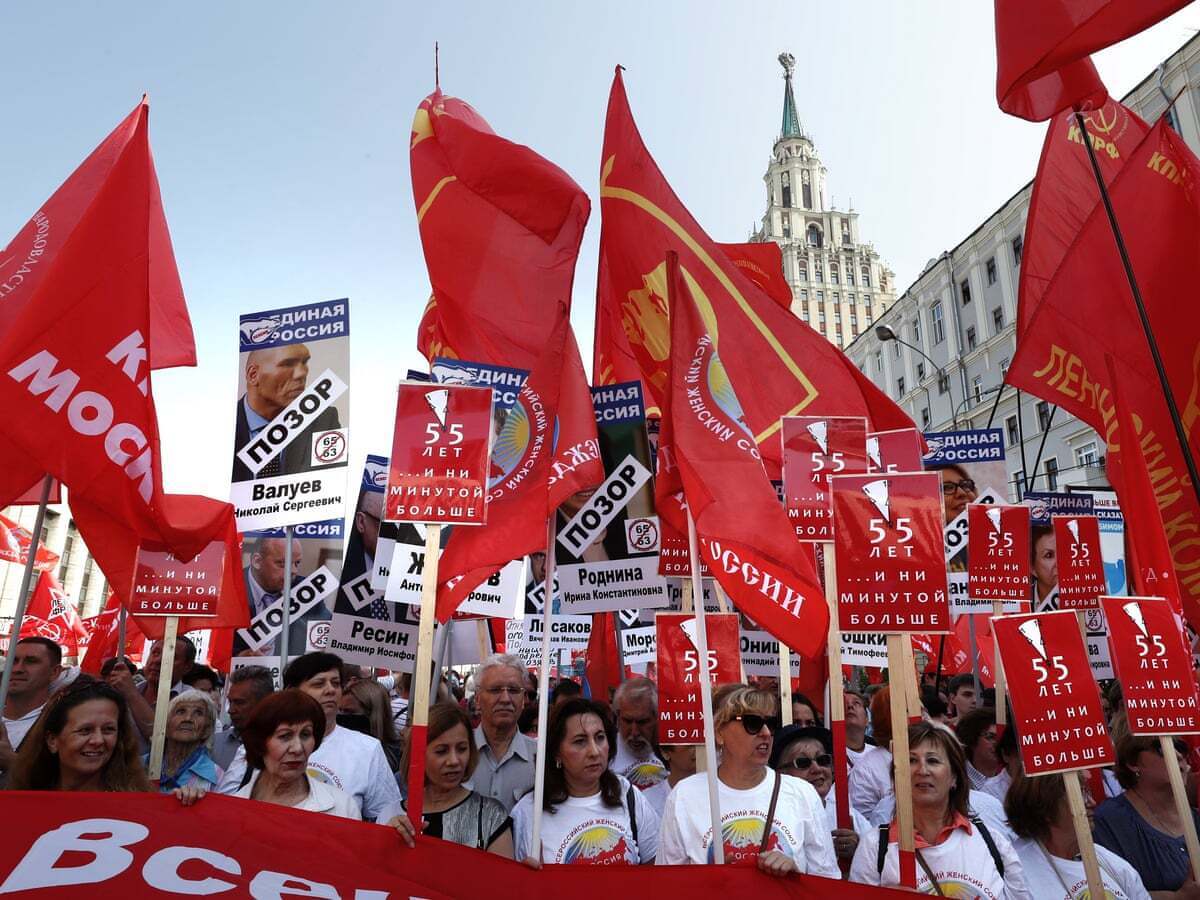The consequences of the cancellation of the pension reform by President Putin
Russian President Vladimir Putin recently announced that he was reversing a controversial pension reform he proposed in 2018. Reforms aimed at raising the retirement age for men and women have sparked mass protests and a fall in Putin's popularity. What are the reasons for this decision and what are the consequences for the Russian economy and society?
The pension reform was originally carried out as a way to cope with the demographic problems that Russia faced. According to Putin, the country's working-age population was declining, while the number of pensioners was growing. This put pressure on the budget and threatened the stability and security of Russian society1. The reforms provided for a gradual increase in the retirement age for men from 60 to 65 years and for women from 55 to 63 years, starting in 20192.
However, the reforms faced strong opposition from various segments of the population, especially women, who felt that they were being unfairly persecuted. Many Russians also feared they would not live to see their retirement, as life expectancy for men in Russia is 66 years and for women 772 years. Moreover, some critics argued that the reforms were a way to divert public attention from other issues such as corruption, poverty and sanctions3.
In response to the backlash, Putin made some concessions in August 2018, lowering the proposed retirement age for women to 60 and offering some benefits to mothers and working pensioners. However, this did not calm the protesters, who continued to demand the complete abolition of the reforms. According to a VTsIOM poll, Putin's approval rating dropped from 80% in March 2018 to 64% in August 20182.
After four years of trying to pass pension reform, Putin finally decided to abolish it altogether. In a televised address on September 27, 2021, he said that he listened to the opinion of the people and realized that the reforms were unacceptable for many Russians4. He also said he had found other sources of funding for the pension system, such as raising taxes on high earners and cutting spending on some government programs4.
The cancellation of the pension reform is seen by some analysts as a sign of Putin's weakness and vulnerability ahead of the 2024 parliamentary elections. Some observers suggest that Putin is trying to regain his popularity and legitimacy by appeasing his core supporters, who are mostly older and conservative voters. Others see it as a pragmatic move, reflecting Putin's recognition of the social and political realities in Russia.
The consequences of canceling the pension reform for the Russian economy and society are unclear. On the one hand, this can ease the social tension and discontent that have been brewing in recent years. It can also stimulate consumer spending and economic growth by increasing the disposable income of retirees. On the other hand, this may worsen the financial position and sustainability of the pension system in the long term. It could also undermine Russia's competitiveness and innovation potential, preserving an aging and less productive workforce5.
In conclusion, Putin's decision to reverse pension reform is a major policy change with both positive and negative implications for Russia. This shows that Putin is sensitive to public opinion and is willing to compromise on some issues. However, it also raises questions about his leadership and vision for Russia's future.
I hope you enjoyed reading my article. Do you have any feedback or comments? 😊
What you think about Pension Reforms?
Проголосуйте, чтобы увидеть результаты
Статья: Европа заявила Трампу, что признавать Крым российским не собирается и хочет отговорить от того же Америку,
Заработано: 1500 ₽ в конкурсе
Статья: У России есть право на ядерный удар. Судный день возможен?,
Заработано: 1300 ₽ в конкурсе
Статья: Кому положено льготное протезирование зубов? Как и где необходимо проводить протезирование. Памятка,
Заработано: 1200 ₽ в конкурсе
Статья: Есть ли Бог? Кто-то знает? Как жить после смерти любимой жены,
Заработано: 1100 ₽ в конкурсе
Статья: Напоили и жестоко истязали. В Иваново толпа мигрантов насиловала женщину на протяжении 7 часов,
Заработано: 1000 ₽ в конкурсе


